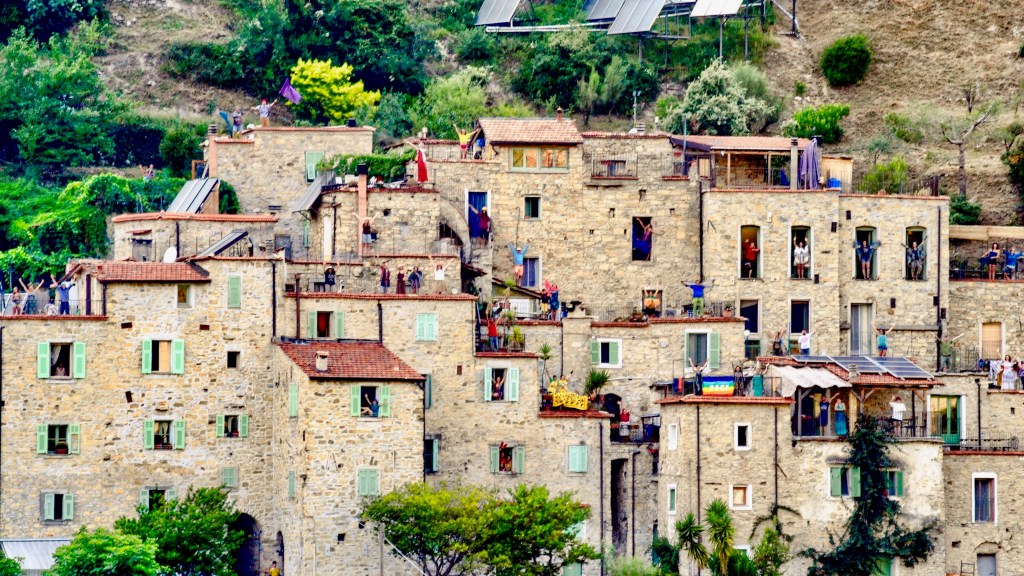Kevin McCloud Warns of a Two-Tier Housing Crisis in Britain
The housing landscape in Britain is shifting towards a two-tier system, with the majority of residents in England living in uninspiring, mass-produced homes. In contrast, Scotland, Wales, and select areas within England are experiencing a rise in high-quality, well-designed, energy-efficient housing.
Kevin McCloud, the 65-year-old host of Channel 4’s Grand Designs, predicts that the country is entering a “two-speed race” in housing quality.
He points out that towns with under-resourced local authorities struggle to produce ambitious housing plans. This results in inadequate schemes that mass-production developers exploit, leading to a proliferation of standard housing that lacks uniqueness.
McCloud’s frustration with major housebuilders is clear. The largest eleven companies are responsible for approximately 40% of homes constructed in England. He emphasizes the importance of prioritizing quality over quantity, highlighting how political focus often leans towards numerical targets, such as Labour’s aim to build 1.5 million homes within five years.
He identifies several regions in England where good-quality new buildings can be found, including west Oxfordshire, Cornwall, Cambridge, Leeds, Sheffield, Salford, and Lancaster. However, McCloud believes Scotland and Wales will increasingly outshine much of England in terms of housing quality.
“Their ambition translates into planning policies that significantly elevate the standard of housing compared to the typical offering in England,” he notes. “Visitors will certainly notice the difference. If I were to establish a business in the UK, I would consider these regions very carefully,” he adds.
Scotland is advancing its introduction of Passivhaus standards for new homes, which McCloud believes will put England to shame. Similarly, Wales is promoting its Well-Being of Future Generations Act and One Planet Development policies.

Last year, the Scottish government sought public input on a national Passivhaus standard, with a follow-up consultation planned for this summer. These standards, which focus on energy efficiency through enhanced insulation, airtightness, and advanced ventilation systems, are set to take effect in 2028.
Nonetheless, McCloud remains optimistic about the possibility of improving the situation. He advocates for increased investment in training for planners and hiring more conservation officers, noting that around 20-25% of local authorities currently lack such positions. This deficiency indicates a shortfall in the focus on quality within the built environment.
The ongoing infrastructure bill in Parliament mandates training for local councillors on planning committees, with a push from the Royal Town Planning Institute for them to undergo testing. McCloud believes this initiative will enhance the planning process significantly.
He praises Cambridge’s planning department for maintaining an architects’ branch within its planning framework, which may explain the city’s frequent role in government housing projects. For example, the former housing secretary Michael Gove recently announced plans for a “new urban quarter” surrounding Cambridge.
Many authorities are still grappling with the repercussions of cuts to planning officer numbers made during the financial crash. Without addressing this, McCloud warns that the move from a reactive to a proactive planning system that fosters quality will remain unachieved.
A report from the Home Builders Federation revealed that numerous housing projects are being delayed due to a “severe shortage” of planners, with 80 percent of local planning authorities functioning below capacity. An estimated 2,200 planning officers are needed across England and Wales, with notable shortages in Birmingham, north Devon, Waverley in Surrey, Guildford, and Haringey in north London. The government has committed to recruiting an additional 300 planners by 2026.
He also references Lancaster, a city featured in his Channel 4 series, The Great Climate Fight, which discussed local efforts to enhance building quality.
McCloud recalls that Lancaster’s planning department had previously contested a government ruling but has since succeeded, allowing them to mandate that developers adhere to Passivhaus standards. This victory positions Lancaster as a potential hub for high-quality housing and enhanced quality of life.

Another initiative highlighted by McCloud is Lilac (Low Impact Living Affordable Community) in Kirkstall, Leeds, which has been a model of diverse architectural community living for 20 years.
Lilac was born from the vision of five residents eager to create custom homes while fostering a community-oriented lifestyle. Official construction began in 2012, and the community now consists of 32 adults and 12 children living in straw-bale homes, with shared facilities and communal gardens.
McCloud also commends Urban Splash for its innovative regeneration projects in cities like Manchester, Birmingham, Sheffield, and Leeds.
In spite of the challenges, McCloud sees significant potential across the country, particularly at the small-to-medium project level, where quality developments are emerging. These projects are becoming essential as companies seek locations with good infrastructure and quality living for their employees.
There is, however, some disappointment regarding the low rate of self-build projects in Britain, a situation attributed to the cost uncertainties arising from various recent economic factors.

According to the National Self Build & Renovation Centre, about 13,000 self-build homes were completed in the UK in 2022. However, data from the government indicates that planning permissions for custom-build or self-build serviced plots fell by 18% from previous years, with only 5,182 permissions granted between October 2022 and 2023. At that time, around 64,233 individuals were waiting for self-build plots in England.
In contrast to the US and Europe, where self-build accounts for 45-50% of housing construction, in the UK this figure stands at only 7-10%, according to Construct UK.
McCloud comments, “Despite the government’s intentions over the past decade, the self-build market has stagnated around 8%, which includes custom builds and has not seen growth. Factors such as COVID, Brexit, and the fluctuating economy have influenced the housing supply chain and delivery models significantly.”
He also reflects on his own experience starting the eco-housing firm Hab Housing in 2007, which ultimately went into liquidation last year. He has reportedly undertaken significant restoration work on his home in Herefordshire but prefers to keep the details private. “Maintaining editorial distance from the process is vital, as my role is to serve as a vessel for information on [Grand Designs].”
When asked about his favorite Grand Design, McCloud cites the triangular house of Olaf and Fritha as exemplary. Built on an oddly shaped, challenging plot of land, it is a personal and exquisite creation that stands out regardless of marketability.
McCloud’s Three Tips for Self-Build Success

1. Seek professional guidance: Enlist the help of builders, architects, and especially quantity surveyors to ensure budget control from the start.
2. Understand the commitment: Building a home is not for everyone. It requires resilience, focus, and support from family. It can be a stressful process that demands patience.
3. Infuse personal creativity: The most intriguing buildings are born from genuine passion and conviction, rather than mere imitation of neighbors or trends seen in architecture magazines.
McCloud’s insights come as he prepares for Grand Designs Live at ExCeL London, set to showcase the best in home and design from May 2-5.
Stay tuned for more daily Property & Home news and updates.




Post Comment